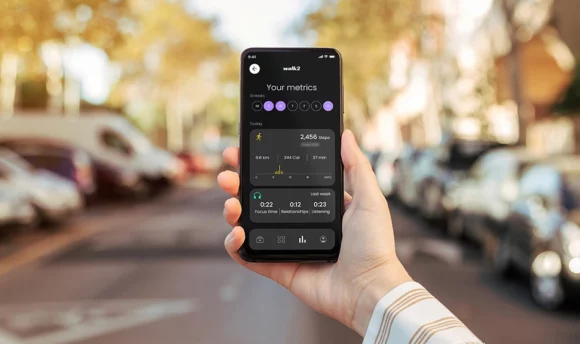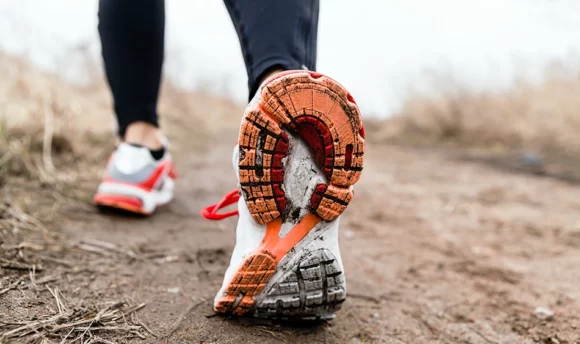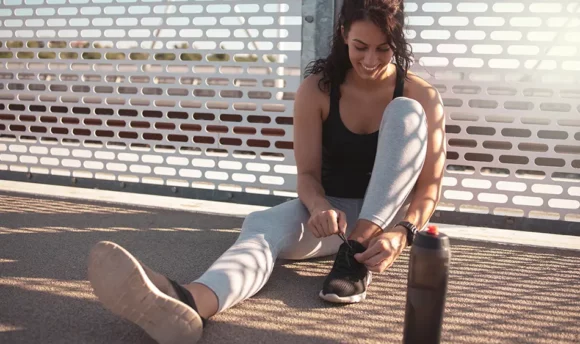Walking vs. Running: Which Is Better for Weight Loss?
This article looks at the differences between both exercises and what you stand to gain with either one. So take a walk with us while we run through the details.

Running is one of the best cardiovascular exercises in the world today. Even if you hate running, it is impossible to deny the many benefits that come with it. In the same vein, walking offers similar benefits, although in a smaller portion.
With either physical activity, you will burn calories, gain a healthy weight, and improve your cardiorespiratory system.
Today, we will find many arguments about which physical activity is the best and why you need to prioritize one as opposed to the other. The truth is that there are several factors to take into consideration when discussing something like this.
Differences Between Walking and Running
The clear-cut difference between walking and running lies in the number of calories burned.
Running burns more calories than walking, as it involves exerting more energy, which may result in burning calories twice the amount as walking. In that regard, burning more calories means you lose weight at a faster pace.
Another significant difference between walking and running revolves around the injury risk factor. Researchers reveal that participants of high-impact exercises, in this case, running, stand a higher chance of getting injured than walkers and others that engage in a low-impact exercise routine.
You increase your chances of suffering from overuse injuries by inducing more stress on your bones, muscles, and ligaments. In fact, studies denote that 70% of all runners suffer from overuse injuries annually.
In this case, if you suffer from joint health problems, opting for a more comfortable walking routine would be wiser than running. You can even boost your health gains by walking more steps daily.
Is walking as good as running?
Regarding the health benefits associated with walking and running, it is safe to say that walking is indeed as good as running. Furthermore, with both exercise routines founded on the same premise, they offer the same benefits at different levels.
Both exercise routines will help with weight loss, high cholesterol, heart disease, high blood pressure, and diabetes mellitus risk reduction. Similarly, both routines also cater to mental health improvements, including cognitive enhancements, stress and anxiety control, and better sleep quality.
But since walking is of lesser intensity than running, you should place more priority on the long walk to get the same benefits. However, you need to schedule an equivalent rest day to minimize your risk of injury.
These features allow runners to train effectively, leading to better physique development and strength.
If walking is your go-to option, we would recommend trying Walking.Diet. Walking.Diet helps maximize your walking workouts, allowing you to go through your fitness journey relatively quickly and efficiently.
The Walking.Diet fitness program centers on offering support, guidance, and professional expertise to those interested in this exercise, which they gain access to after completing a mandatory quiz.
The program offers a personalized walking plan that includes warm-up and cool-down exercises, a meal plan, and health articles centered on nutrition, walking gear, and overall health benefits.
The program comes with extra features, which ultimately help reduce the risk factors and take things to the next step. Overall, the combination of functionality and customization makes it the best asset for every walker.

- Offers walking training plan
- Provides warm-up and cool-down workouts before and after walking workout
- Includes keto desserts cookbook
- Offers the articles about food and nutrition, walking gear
Walking vs. Running Calories
Naturally, it is only fitting that running burns more calories than walking since it demands more energy expenditure than its counterpart. The difference in calories burned between running and walking may even be double.
Harvard Medical School offers a clearer depiction of the number of calories burned when partaking in either exercise routine. A 150-pound individual will burn about 107 calories power walking for 30 minutes at 3.5mph. A second person, weighing 150 pounds, will burn 240 calories running at 5mph for 30 minutes.
The number of calories you expend with either exercise will depend on your weight, frequency, and intensity. For example, increasing your walking or running speed will result in you rapidly losing body fat and weight.
When it comes to walking or running for weight loss, you must lose 3,500 calories to drop 1 pound, making your running routine much more precious. You can do so efficiently by integrating different running types into your exercise program like long runs, tempo runs, etc.
But, again, if you cannot go on runs, whether because of underlying health conditions or persistent injuries, you can match the number of calories linked with running by going on long walks, like walking 10 miles daily, and playing around with different speeds in your walks.
Running or Walking for Muscle Gain
Another factor that may influence your exercise choice is which one helps you build more muscle. Both exercises usually work the same muscle group. Muscle growth, on the other hand, depends on the ability to initiate muscle hypertrophy.
Research on the mechanism of muscle hypertrophy revealed the 3 primary components that facilitate muscular growth: mechanical tension, muscle damage, and metabolic stress.
To gain any significant muscle size, you need to subject your muscle fibers to consecutive overload and break down – the healing process accompanying the breakdown stage results in developing bigger and stronger muscles.
In that regard, running offers you more muscle gain benefits than walking.
Heart Health
Both exercises, walking and running, are excellent in boosting heart health and reducing your risk of heart disease.
A study in the American Heart Association medical journals stated that moderate-intensity activity like walking and high-intensity activity like running are perfect for reducing hypertension, hypercholesterolemia, diabetes mellitus, and coronary heart disease.
These health conditions drastically reduce heart function and, if left unchecked, could be fatal.
Similarly, the current physical activity guideline states that every healthy adult needs a minimum of 150 minutes of moderate-intensity exercise or 75 minutes of high-intensity exercise every week.
Still, those numbers account for the minimum, meaning you are free to expound on your routine to get the most out of it. Doing so consistently prevents you from the harmful effects of a sedentary lifestyle.
If walking is your go-to exercise, you must determine how many miles you need to walk daily. The same also goes for running, although most people just settle for running 5 days weekly to see them through their fitness journey.
Which Is Better for Toning Muscles?
Even though both exercises use the same muscle groups, running is the best exercise when it comes to the ability to tone muscles. However, walking, especially on uneven surfaces, does help with muscle toning, although in small amounts.
That is because running engages your muscle groups at a higher clip, especially the muscles in the lower body, such as the quads, hamstrings, glutes, and calves.
However, it is essential to note that running will not give you the sort of muscles you see in athletes. Instead, the secret behind their athletic physique comes from months of intense resistance training.
In any sense, it would be wise to incorporate the Joggo app into your training cycle. The app’s main features include a customized workout routine, meal prep, and educational tidbits to keep users engaged. Joggo also allows runners to keep track of their progress and performance by providing biweekly tracking reports, which helps in workout adjustments.
Overall, the app is the complete package, allowing runners and other athletes to better themselves mentally and physically.
Budget Comparison
Both activities are reasonably cheap compared to other forms of exercise, but when push comes to shove, going for a walk is the cheapest option for you.
That is because, unlike running, you do not need as much gear when you go for a walk. In actuality, all you need for your walk would be a bottle of water ($1.00), comfortable shoes ($100) that protect your legs from pain and injuries, and weather-appropriate clothes ($70).
Running may necessitate the purchase of more expensive activewear (costing upwards of $100) to keep the sweat at bay. Activewear is essential for runners because it allows them to run longer distances faster.
Overall, if your goal is to partake in either activity for leisure, then walking should be your choice to cut costs.
Injury Prevention
Walking trumps running when it comes to injury prevention because it is low-impact, putting less stress on your body, especially your joints. Statistics show that walking accounts for less than a third of running-related injuries.
A Cleveland Clinic study showed that 60% of runners would suffer from at least one running-related injury that will keep them from the exercise.
Some of the common injuries include Achilles tendonitis, plantar fasciitis, shin splints, and IT band syndrome. Therefore, it would be wise to check in with your doctor and coach to determine which activity you should engage in, especially for those suffering from underlying health conditions.
A Word From Our Coach
From a professional perspective, the walking versus running debate boils down to your wants and current fitness level. Walking and running are both great for improving heart and mental health, enhancing the immune system, and weight loss.
Your fitness level will determine which exercise is perfect for you, and you can always dial things up gradually.
As much as we would like to push ourselves over our limits, making gradual progress is still the smartest way to exercise. Therefore, check in with your doctor to ensure that you are not overexerting yourself, after which, you are good to go.
Conclusion
If you hate running or walking, you need to work around your dislike and start exercising. Pound for pound, you get way more benefits from these exercises than other cardiovascular activities, which are entirely free.
So, put on your running shoes, grab a bottle of water, and head into the great outdoors. Do not forget to eat healthily and take good care of your body. You can quickly transform your life one step at a time!

















































 Select your language:
Select your language: 








